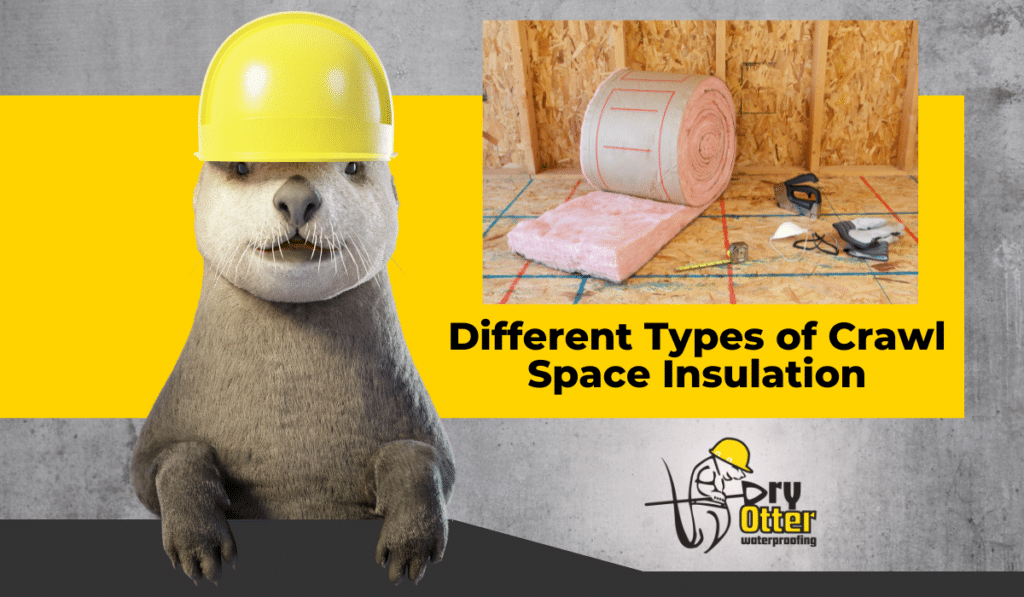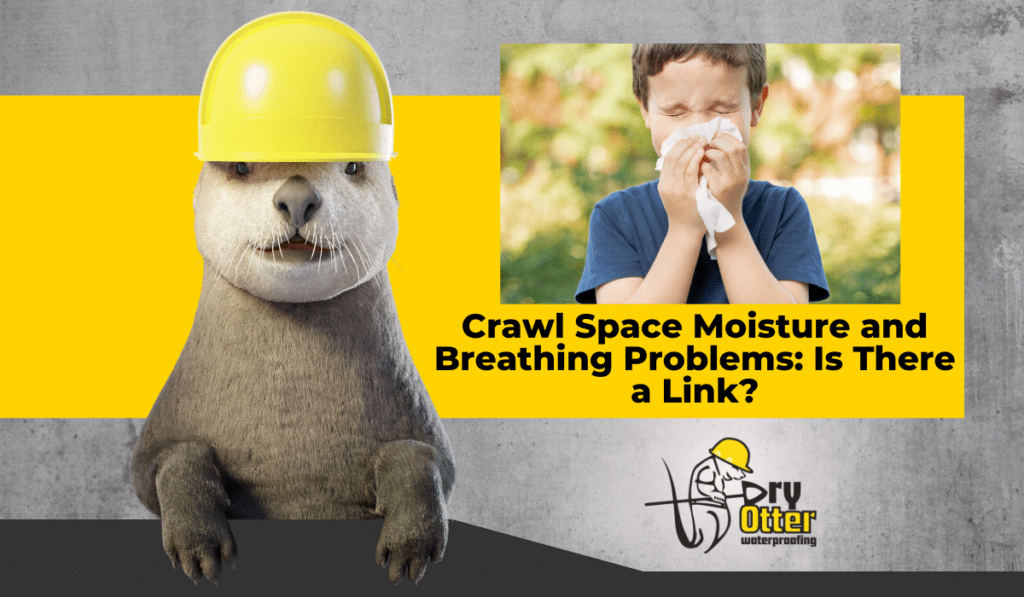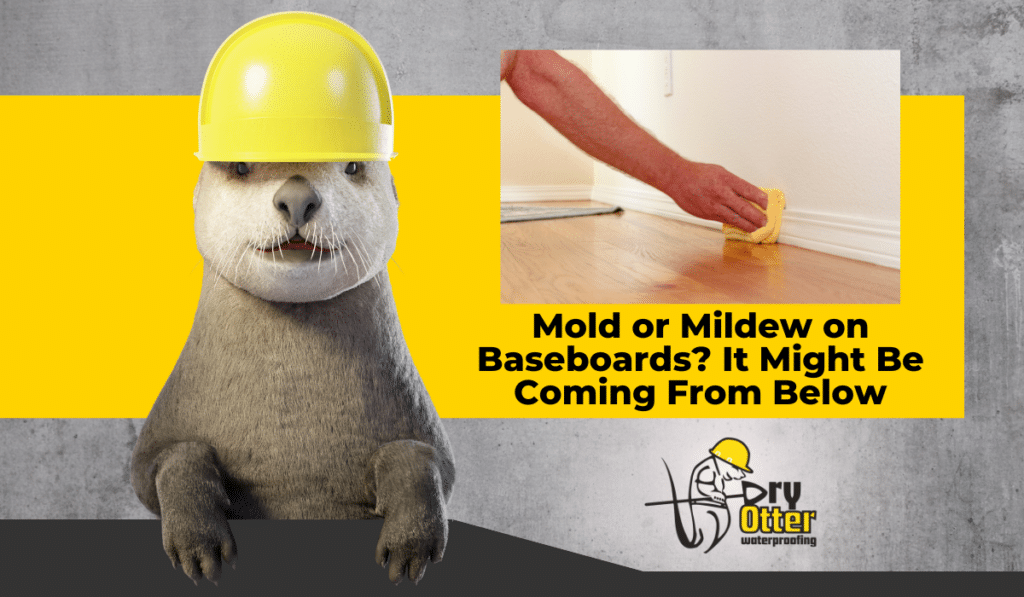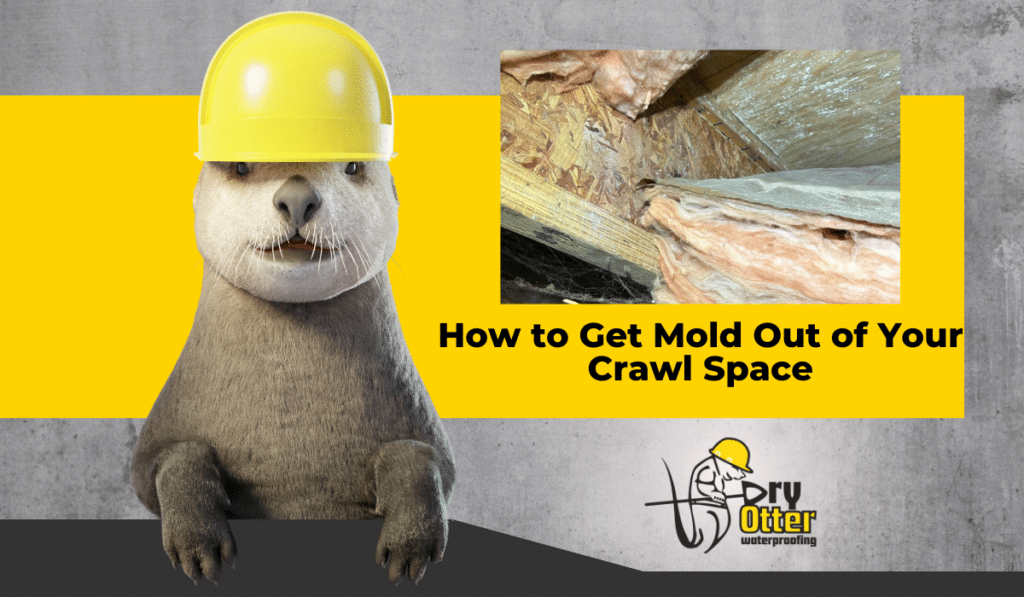Basement moisture is a common concern for homeowners because it can create many problems that stem from excess water.
Moisture issues can cause structural damage by weakening foundation walls, leading to cracks, bowing, and, in severe cases, collapse. They can also encourage wood rot, mold, and pest infestation.
This article will focus on what causes moisture in a basement, tips on preventing moisture issues, and Dry Otter’s professional solutions for excess moisture in basement areas.
What Causes Moisture in a Basement?
Basements are naturally prone to moisture because of their location below ground, where excess moisture can easily access your space. These are the most common reasons why:
Poor drainage: Improper grading, clogged gutters, or a lack of proper drainage systems that direct water away from the foundation all increase the risk of water pooling around your foundation.
Cracked foundation walls: Small cracks allow water to seep through and can become larger cracks over time.
Leaking pipes: Issues with your plumbing or old pipes can all create hidden leaks that lead to water damage over time.
Hydrostatic pressure: The weight of the soil and water surrounding your foundation creates pressure that can push water through cracks and other porous materials into your basement.
Condensation: When warm, humid air comes into contact with cool basement walls, it can cause condensation in basement areas, leading to dampness.
Signs of Moisture Problems in a Basement
- Damp walls or floor: If you see persistent damp spots or water stains, this is a sign of unwanted moisture.
- Musty odors: A musty smell is a sure sign of mold or mildew growth caused by trapped moisture in basement areas.
- Mold and mildew growth: Dark spots visible on walls or surfaces indicate mold growth from condensation in basement spaces.
- Peeling paint or efflorescence, which is a white powdery deposit, all indicates water evaporation.
- Bowing or cracked walls: These are signs of structural damage caused by excessive water pressure.
Preventing Basement Moisture Issues
There are several ways to prevent moisture issues in your basement to keep it safe and dry. These are some of the most important:
- Maintain gutters and downspouts. Clear them of debris, and make sure downspouts point away from your foundation. Inspect them regularly for clogging, leaking, or cracks.
- Improve grading: Check that the soil around your foundation slopes away from your home. If not, improve the slope to prevent water from pooling around it.
- Install a sump pump. It is a safe way to remove excess water from your basement during heavy rain.
- Seal all cracks. Use a professional-grade sealant to address minor cracks and prevent moisture from entering your basement; seek professional help to stop water flow from large cracks.
- Control humidity levels. A dehumidifier can easily control moisture levels by keeping your air humidity levels at the recommended levels.
Professional Solutions from Dry Otter Waterproofing
Dry Otter Waterproofing offers proven, effective solutions for waterproofing your home. We have the knowledge and expertise to tackle your most pressing water intrusion problems.
Our experts will inspect your basement and offer the following methods based on your specific water intrusion issues:
- Interior waterproofing system: We will install interior drains that feed a sump pump. The pump will then pump out excess water to the outside, effectively managing water entry and exit.
- Foundation crack repair: Seal and reinforce foundation cracks using professional expertise to ensure the job is done thoroughly and correctly.
- Basement encapsulation: Encapsulation is the process of sealing your entire basement from excess moisture to prevent water from entering your space.
Why Addressing Basement Moisture Early Matters
Excess basement moisture can affect your entire home. It is also crucial for your family’s health to address water in your basement before it creates adverse health issues for your entire family.
The key reasons for addressing basement water issues:
- Prevent mold and health issues related to mold: Mold spores can have serious health consequences. Mold spores cause respiratory problems, especially in people already suffering from allergies and other respiratory infections.
- Preservation of your home’s structural integrity: Dealing with excess moisture in your basement will protect your home’s foundation from long-term damage that can damage your entire home.
- Increase your home value: A dry basement indicates good structural integrity. This adds value and market appeal for people looking for a safe home free from destructive issues.
Diagnosing and fixing basement moisture issues when they occur is important to avoid costly damage.
Dry Otter Waterproofing offers expert advice to solve all your basement moisture issues. Schedule a free inspection today for peace of mind to ensure your home is protected.






